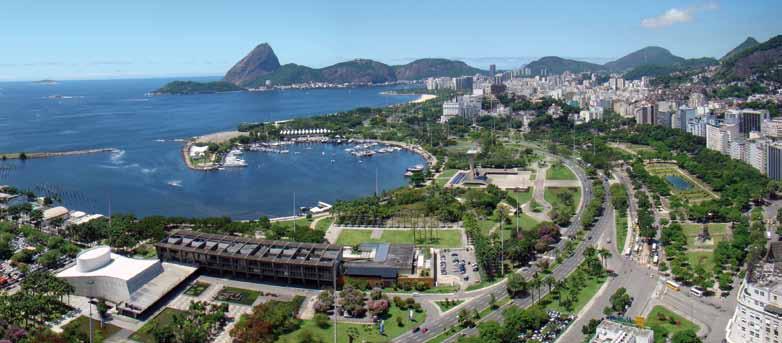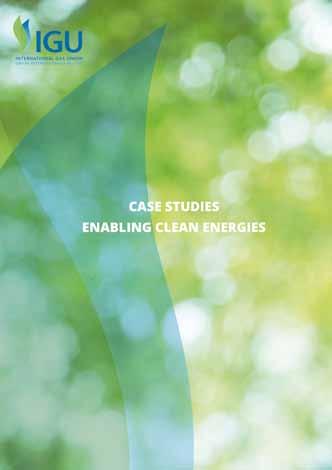
3 minute read
Natural gas as the fuel of the future: how will technology influence this transition?
from IGU Magazine October 2016
by IGU
By Cynthia Silveira and Jorge Delmonte
What is the impact of the current structural changes in the oil and gas industry on gas operations? How can technology contribute to reducing costs and bring competitiveness to companies in a low oil price scenario? In what way can initiatives in research, development and innovation contribute to the industry’s sustainability in a renewed market context? Moreover, and most importantly, how can natural gas make this transition for the use of renewable energies, becoming the energy source that will be the fuel of the future for all societies?
The 2017 edition of the International Gas Research Conference (IGRC) will shed light on this important discussion, under its main theme ‘Natural Gas: Catalysing the Future’. The motto was chosen to reinforce the questions raised and will provide a deep reflection about the future of the natural gas industry, one in which gas companies will need to redefine their models, methods, products and most significantly to become even more competitive through cost reductions and with the help of technology.
As a result of the COP 21 climate conference held in Paris last year, an impressive number of countries committed to reduce their greenhouse gas emissions, and natural gas is a fuel well adapted to help them meet their targets. Natural gas infrastructure requires massive investments while consumers are increasingly looking for flexibility and the option to choose their own supplier.
Technology is the key to finding solutions to overcome the challenges in a new environment, where prices have decreased and the consumer market sees ever-increasing demand. International Energy Agency (IEA) statistics showed a 5.8% increase in gross consumption of natural gas by OECD countries in 2016 compared to 2015.
In Brazil, the discussion is crossing lines, integrating several topics across production, exploration and transportation, among other relevant matters in the gas sector. Profound changes are ongoing in the Brazilian market, as the country’s main oil and gas producing company, Petrobras, is divesting its assets in gas pipeline infrastructure, distribution, gas power generation and regas facilities. This situation will impose changes in the gas regulatory framework in several areas of
the gas value chain, opening opportunities to new investors.
The presalt is creating opportunities and becoming a key exploration frontier – not only for oil reserves but also for natural gas – according to the IEA, Brazil will represent the tenth largest natural gas producing market by 2040. However, the development of this new frontier is imposing technological challenges such as the high contamination levels of carbon in many fields across the country, not to mention several other challenges to monetisation that arise from offshore gas production, but these again can be overcome with technological solutions.
Altogether, Brazilian and foreign markets are searching for answers critical questions set by global society such as finding environmentallyfriendly energy sources and utilising gas as a complementary energy to renewable sources.
The IGRC 2017 conference will map out all technology trends as one of the fundamental pillars for industry development. Business leaders from across all sectors of the natural gas business will gather to discuss the most relevant technical topics of the industry.
In a challenging period that is compelling companies to rebuilt strategies, a refreshing point of view is emerging in our industry: gas as a transition fuel to support a low-carbon economy. It would be a catalysing element to the transformed demands in the energy sector – global power consumption is growing rapidly and a lot needs to be done in order to reach the 17% of the world’s population without any access to energy.
New challenges are facing the energy industry, natural gas will have a major role in overcoming these challenges an in contributing towards a sustainable energy future.
IGRC 2017 will be organised by IBP, the Brazilian Petroleum, Gas and Biofuels Institute, under the auspices of IGU, in Rio de Janeiro next May. The event will be the perfect forum to discuss all these questions with the leading experts of the global gas industry. Visit www. igrc2017.com.br for more information.
Hope to see you there!
Cynthia Silveira is Chair of the Brazilian National Organising Committee; Jorge Delmonte is Natural Gas Manager at IBP.

x IBP look forward to










